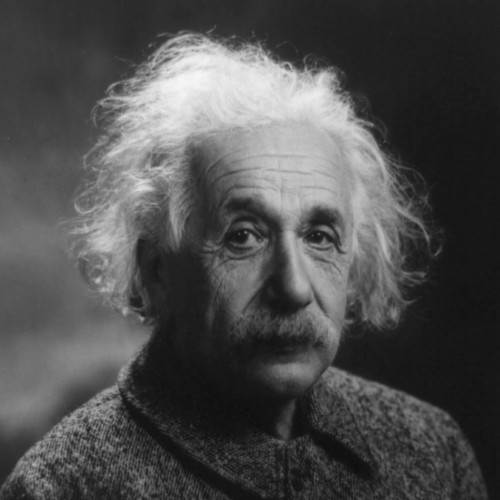Yesterday a friend of mine shared a letter from Einstein on Facebook. I was intrigued to read that Einstein had a daughter Lieserl that I knew nothing about.
So I started to browse the web to find out more details. And soon after I was quite stunned. There was so much I did not know about Einstein. The associations in my head were: remarkable, dyslectic, Nobel Prize in physics, theory of relativity, genius, someone who would awaken the child in people, a man with imagination.
What I learned in the past 24 hours threw me off. That other side of Einstein wasn’t at all what I had expected.
So what did I read?
I read about his first wife. Mileva Maric Einstein. She clearly was a remarkable woman. The second woman to finish a full program of study at the Department VI A: Mathematics and Physics in Zürich. Struggling with a very male dominated society. Looks like Einstein and Mileva were very much in love during their student times. Before even getting married, Mileva had a baby girl. This “detail” of their lives was only discovered through letters that were found in 1980. The little girl was referred to as Lieserl. What happened to Lieserl never got fully clarified. Michele Zackheim, an American journalist, went on a quest for five years and wrote a book about Lieserl. It seems Lieserl was born with complications and died at a very early age. What is sure is that Einstein and Mileva ended up marrying and had two sons (Hans Albert was born in 1904 and Eduard in 1910).
1905 becomes Einstein’s big year – often referred to as his “miracle year”. His publications in one of the best-known physics journals would become game-changers for modern physics. With the aid of Max Planck, the founder of quantum theory, he was able to proof his theories, and soon he became renowned. So far so good.
In 1914, Einstein accepted a job a Berlin. He wants Mileva to move there with him. By that time, he already has an affair with Elsa, his cousin. He writes her:
“Next spring at the latest I will come to Berlin to live. I am very much looking forward to the beautiful times we will spend together. (Albert to Elsa, July 14, 1913)
He also writes Elsa:
“Do you think it is easy to get a divorce if one has no proof of the guilt of the other party?” (Albert to Elsa, before December 2, 1913)
You might think oh well so many people have paramours and that part by itself indeed probably isn’t that shocking.
In 1919, Einstein marries Elsa, two weeks after his divorce. The piece that disturbed me is the reference to the fact that “by then he would have preferred to marry one of Elsa’s daughters.”
But couldn’t that just be an interpretation of a potentially biased author? Then I find a quotation from another letter. A letter that he wrote to Mileva when she asked him for permission to write her autobiography:
“You did make me laugh aloud when you threatened me with your memoirs; doesn’t it occur to you that no cat would give a damn about such scribblings if the man you’re dealing with had not achieved something special. If one is a zero, it cannot be helped, but one should be nice and modest and keep one’s trap shut. That is my advice to you.” (Albert to Mileva, October 24, 1925)
Wow, all I can think is: What an arrogant prick! I continue to look for more details and find an interesting article in the online Time magazine. Which confirms the shady part of the Einstein’s life:
Even after publication of seven more volumes of Einstein papers–and many more embarrassing revelations about his private life (his flirtations, his stormy divorce from Mileva, his possible dalliance with the daughter of the woman who would become his second wife, his estrangement from his two sons, one of whom was schizophrenic)–Lieserl’s fate shadows the Einstein legend like some unsolved equation.
I’m sort of disappointed. The man I thought so highly off seems to have been quite a schmuck.
Then I read the final paragraph in the Time article:
His defenders minimize the latest round of deconstruction. “That Einstein was a cad and mistreated women,” says Schulmann, noting this aspect of Zackheim’s book, “is nothing new.” But it is critical for cultural iconography. Einstein reshaped our view of the universe. That he was a flawed human being is not only fascinating in a tabloid sort of way but reassuring as well. It makes our heroes, even those of unfathomable genius, seem a little more like us.
It makes him human? Oh well, Einstein his quote: “The difference between stupidity and genius is that genius has its limits.” just got a whole new meaning to me.
Side note:
I asked my kids at breakfast if they knew Einstein.
Here is what my daughter said. Isn’t he the guy that can’t swim? We joke about him in my swimming class. Who can swim better than Einstein? Translated Einstein means one stone. So who can swim better than a stone? Well everyone can, as one stone couldn’t swim :-) She made me smile. And indeed I read on the Einstein website: Though Einstein liked sailing very much he could not swim. He even denied to use swim vests. This led to his family always worrying very much when he was out sailing.
My son asked me: What does this have to do with w{e}mbrace? And I have to admit. It does not fit. I am supposed to write about positive things. People and things I embrace. Well, I guess this is an exception. I just had to get it off my chest. Face my own naivety. Life isn’t always what it seems. But we learn. We learn new things every day and tomorrow there will be more to write about . . .
Thank you to my wonderful kids, for putting things in their perspective, for challenging me and keeping me real. I am no genius but I am one lucky woman.


